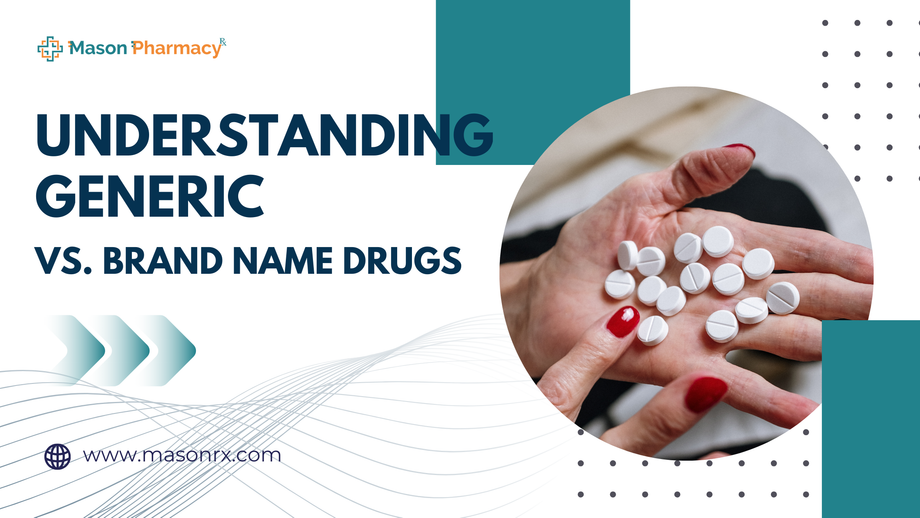Introduction
In the world of pharmaceuticals, generic vs. brand-name drugs is a topic of considerable discussion. Patients, healthcare providers, and insurers often weigh the pros and cons of each option when it comes to prescription medications. The debate primarily revolves around cost, efficacy, and availability. In this blog, we will explore the differences between generic and brand-name drugs, their respective benefits and risks, and why it matters for your health.
What Are Brand Name Drugs?
Brand name drugs are medications developed and marketed by pharmaceutical companies under a proprietary, trademark-protected name. These drugs are the original products, often emerging after extensive research, development, and clinical trials. Brand-name drugs are generally more expensive due to the costs associated with their development, marketing, and FDA approval.
-
Cost of Brand Name Drugs
The cost of brand-name drugs can be significantly higher than their generic counterparts. Pharmaceutical companies often justify these prices by pointing to the large investments made in research and development, as well as the marketing efforts required to bring a new drug to market.
-
Efficacy of Brand Name Drugs
One of the primary reasons some patients and healthcare providers prefer brand-name drugs is their perceived efficacy. These medications have undergone rigorous testing and have a well-documented track record of safety and effectiveness.
-
Risks of Brand Name Drugs
Despite their benefits, brand-name drugs are not without risks. The higher costs can lead to financial strain for patients, and in some cases, the extensive marketing of these drugs can overshadow more cost-effective alternatives.
What Are Generic Drugs?
Generic drugs are essentially copies of brand-name drugs. They contain the same active ingredients, have the same dosage form, and are administered in the same way as their brand-name counterparts. The main difference is that generic drugs are typically sold under their chemical names without the branding.
-
Cost of Generic Drugs
The cost of generic drugs is generally much lower than that of brand-name drugs. This affordability stems from the reduced expenses in research, development, and marketing. Once the patent on a brand name drug expires, other manufacturers can produce the generic version, leading to increased competition and lower prices.
-
Efficacy of Generic Drugs
Despite common misconceptions, the efficacy of generic drugs is comparable to that of brand-name drugs. The FDA requires that generic drugs demonstrate bioequivalence, meaning they work in the body in the same way and provide the same clinical benefits as the brand name version.
-
Benefits of Generic Drugs
There are several benefits of generic drugs. They offer a cost-effective alternative to brand-name medications, making treatment more accessible to a broader population. Additionally, increased competition among manufacturers can lead to innovations and improvements in drug formulations.
-
FDA Approval for Generic Drugs
The FDA plays a crucial role in ensuring the safety and efficacy of both brand-name and generic drugs. For a generic drug to receive FDA approval, it must meet strict criteria for bioequivalence. This rigorous process ensures that patients receive medications that are just as safe and effective as the brand-name versions.

